
A few stair streets

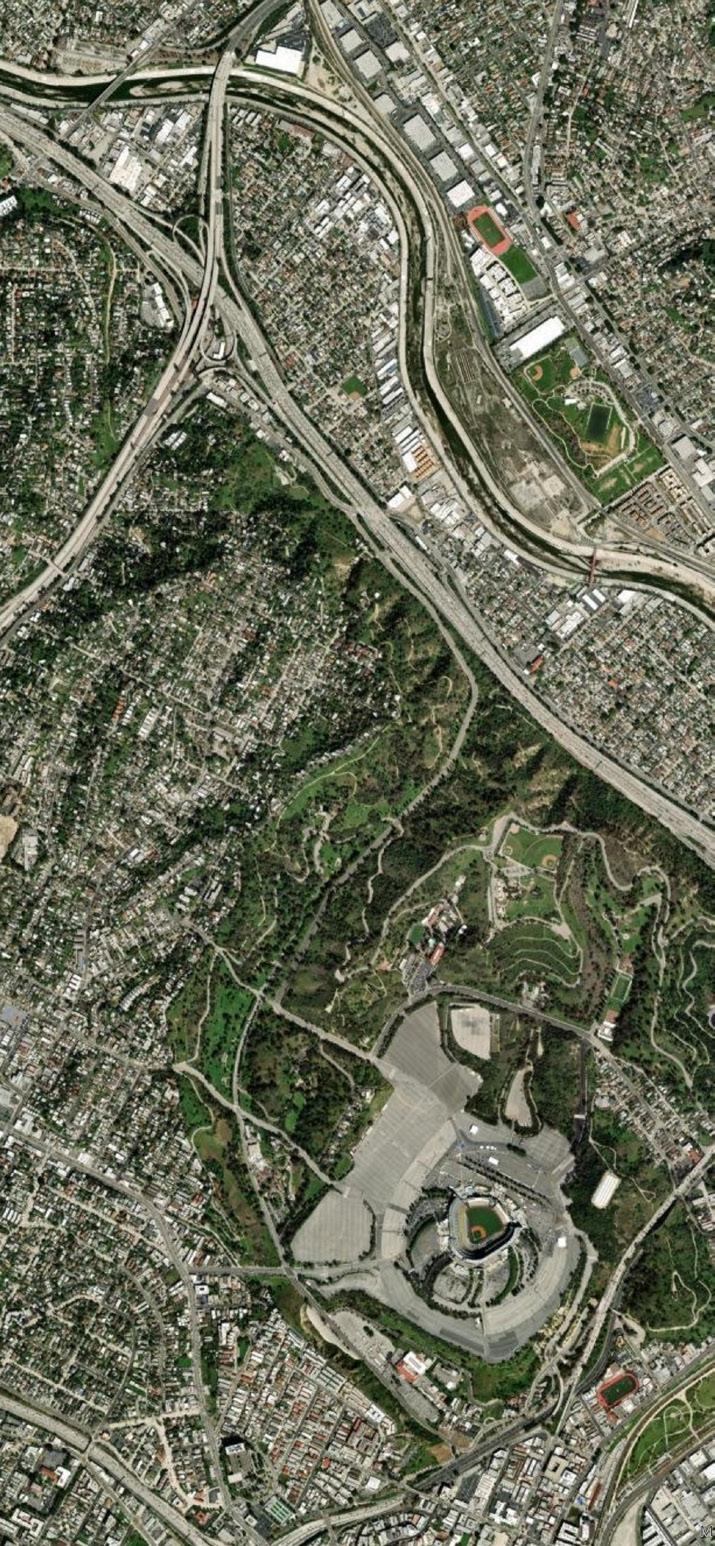



Music Box Steps
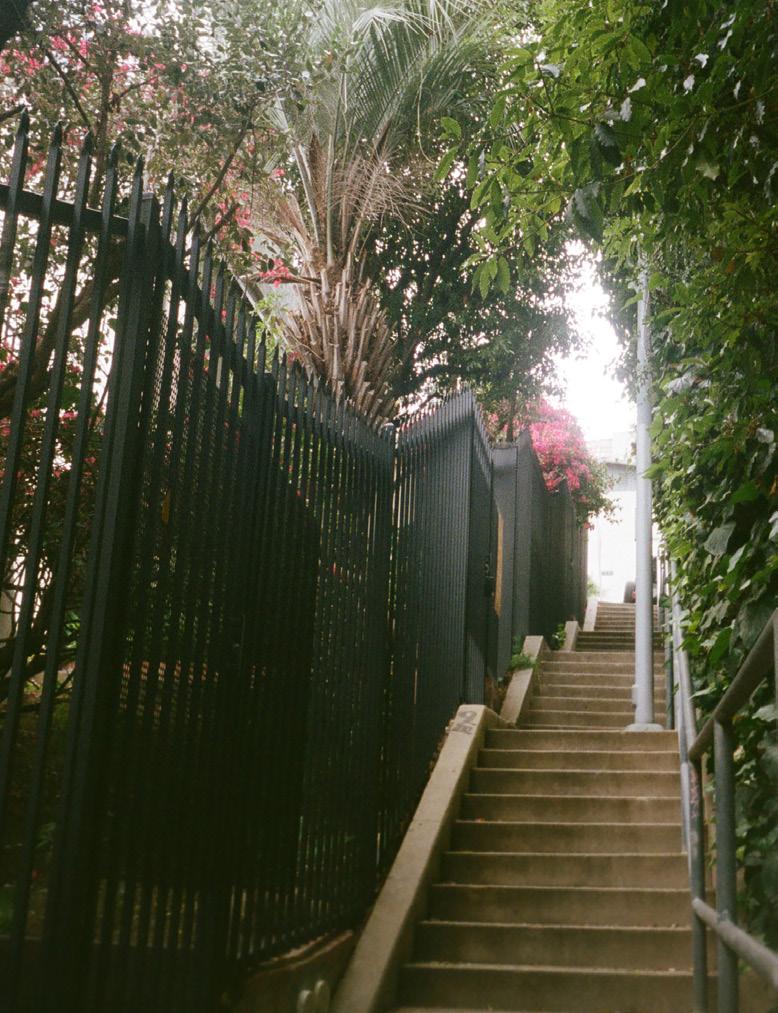



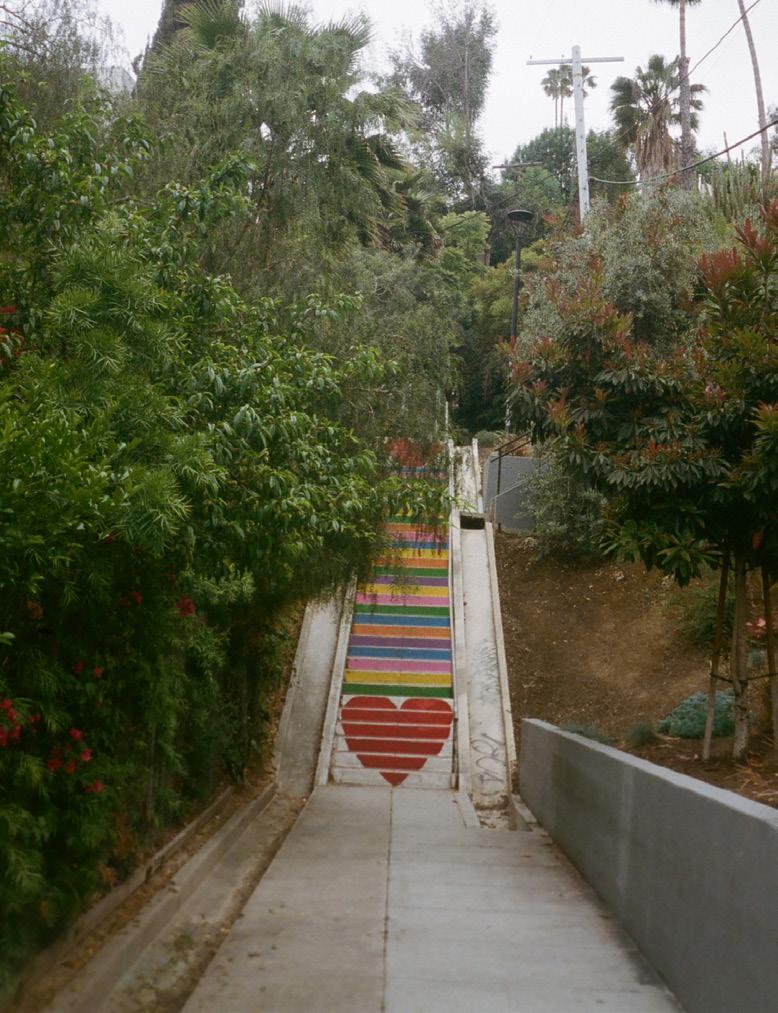

Piano Steps





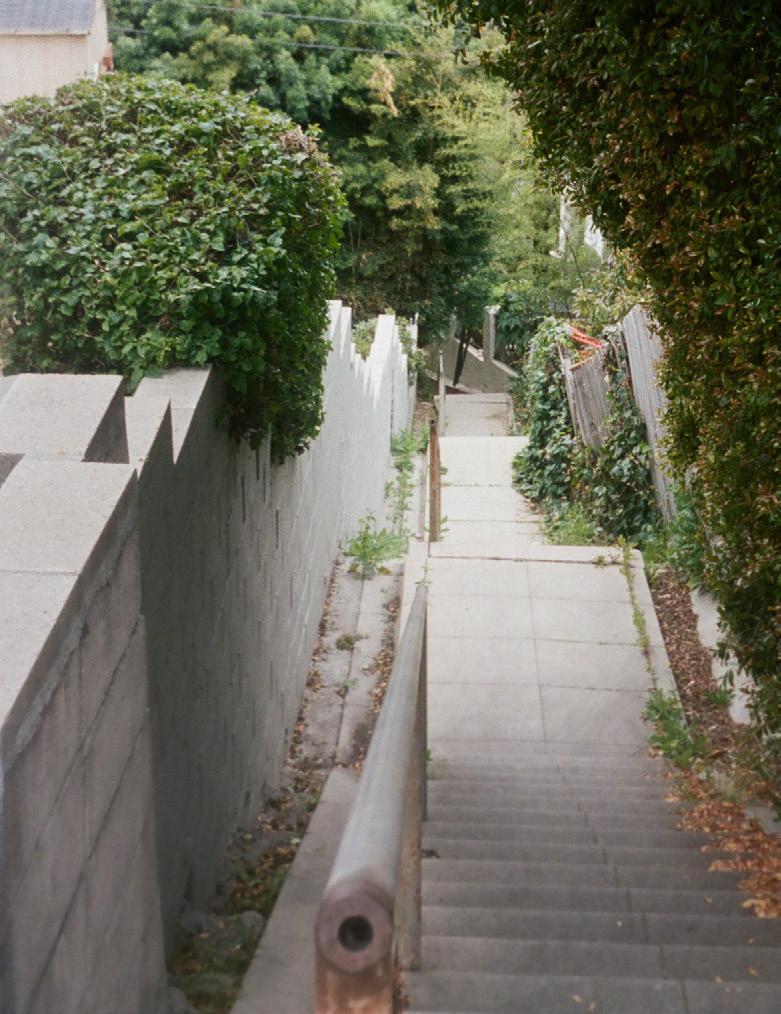


Void at Reservoir St.






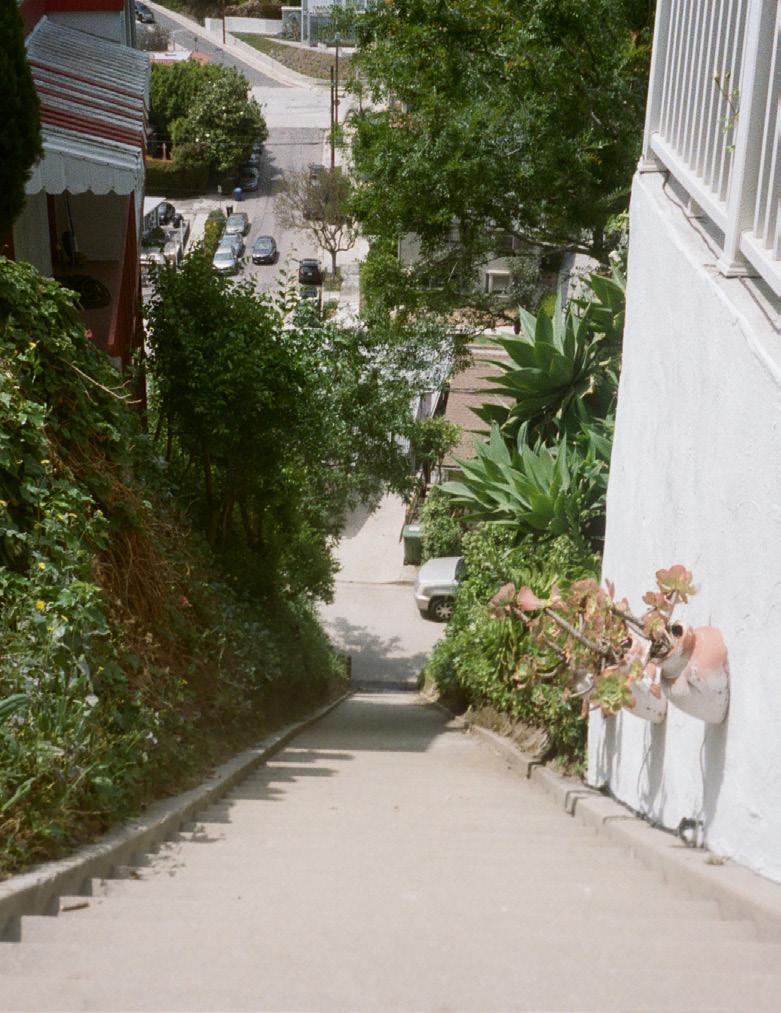

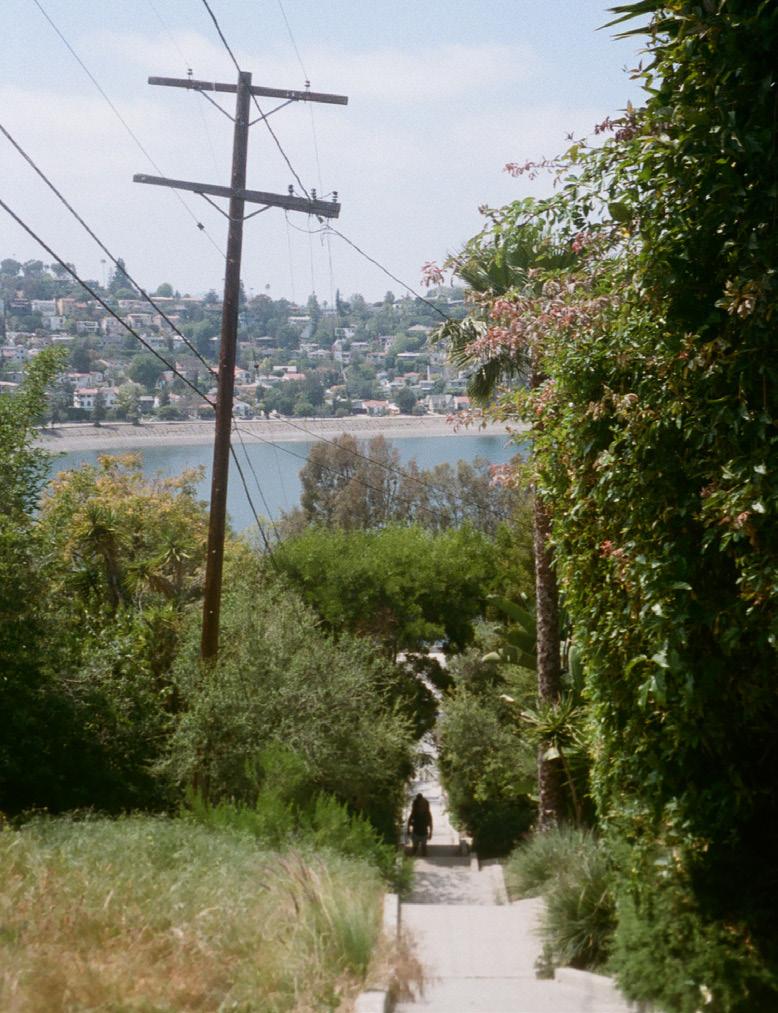
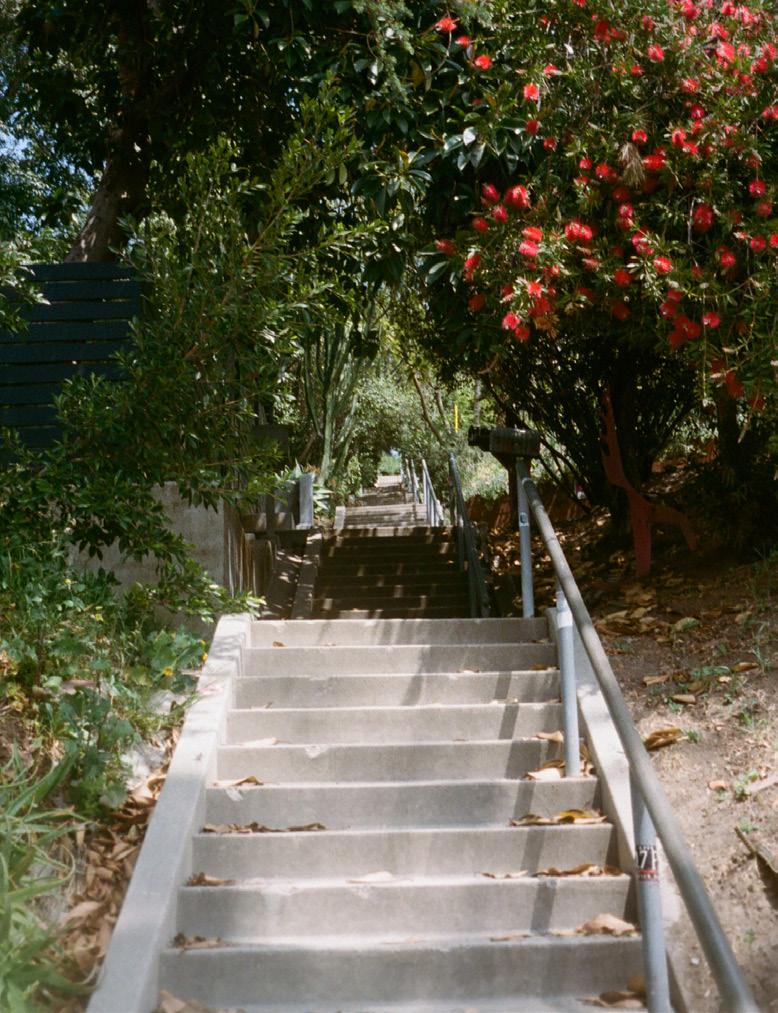
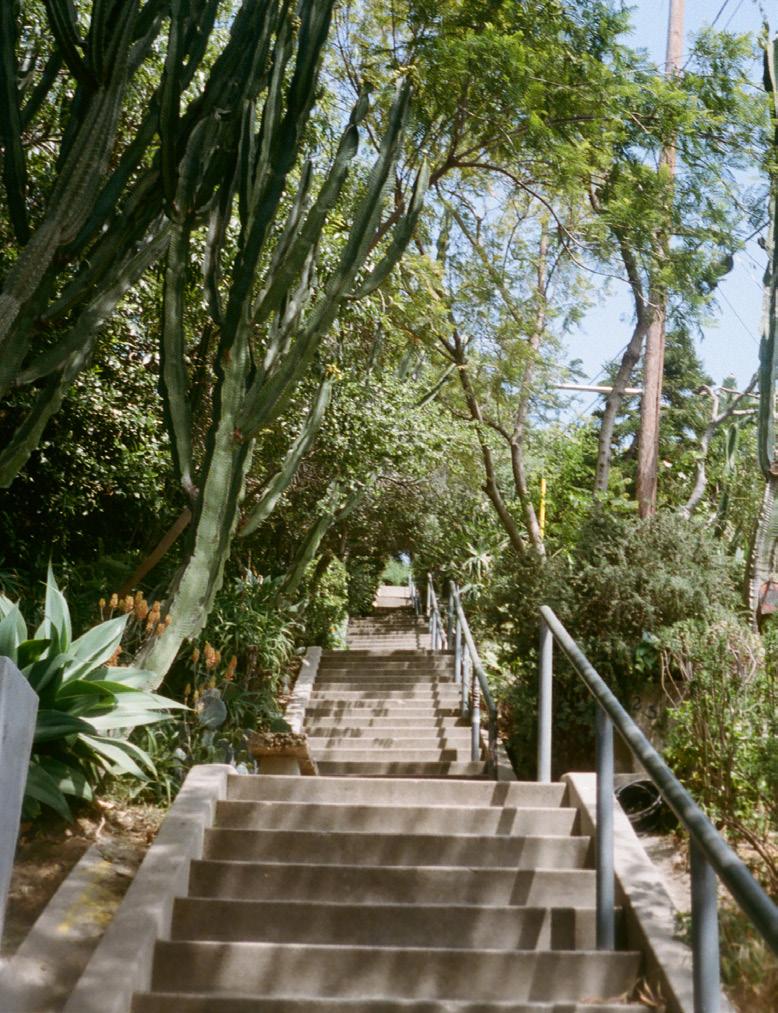






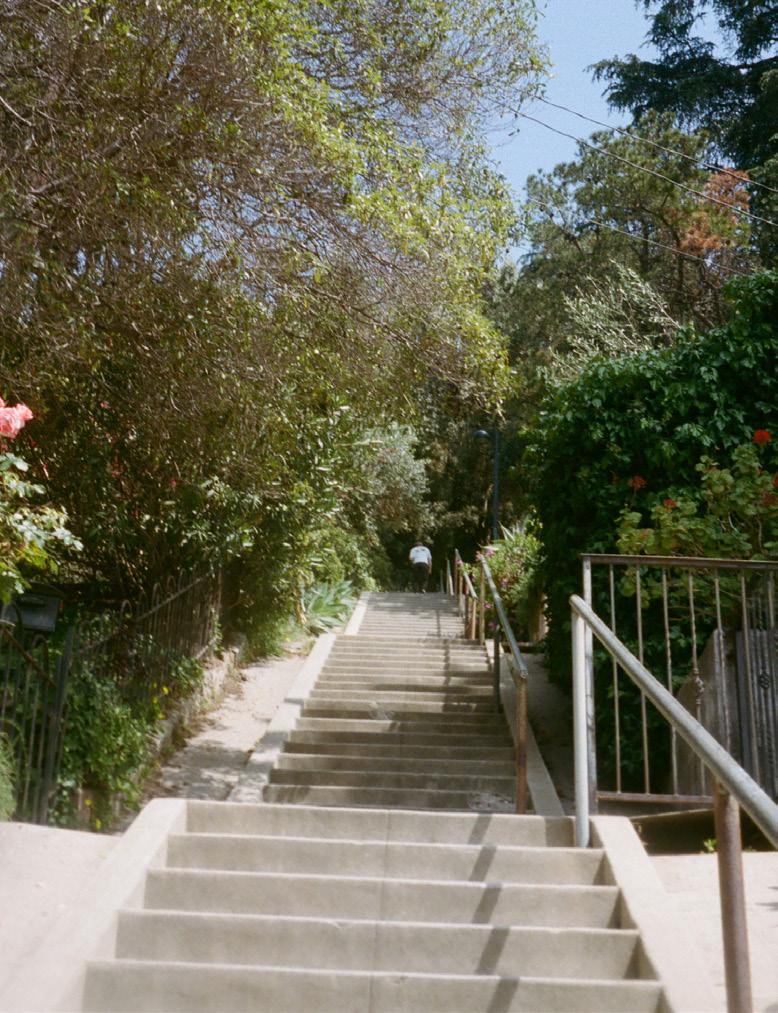








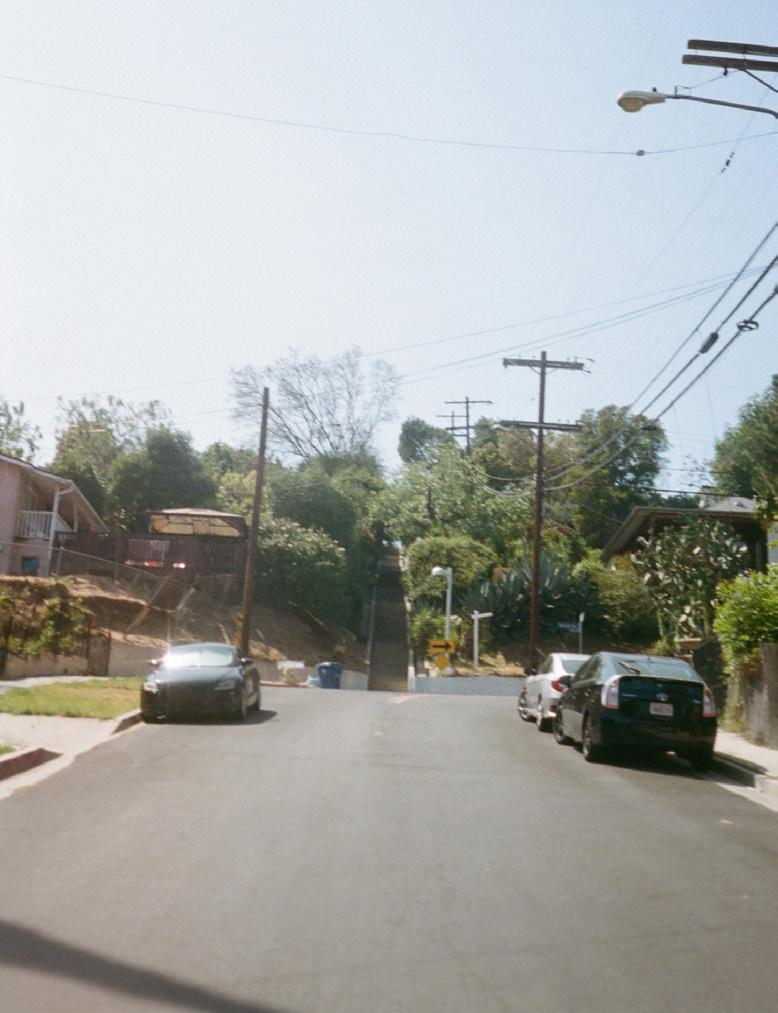



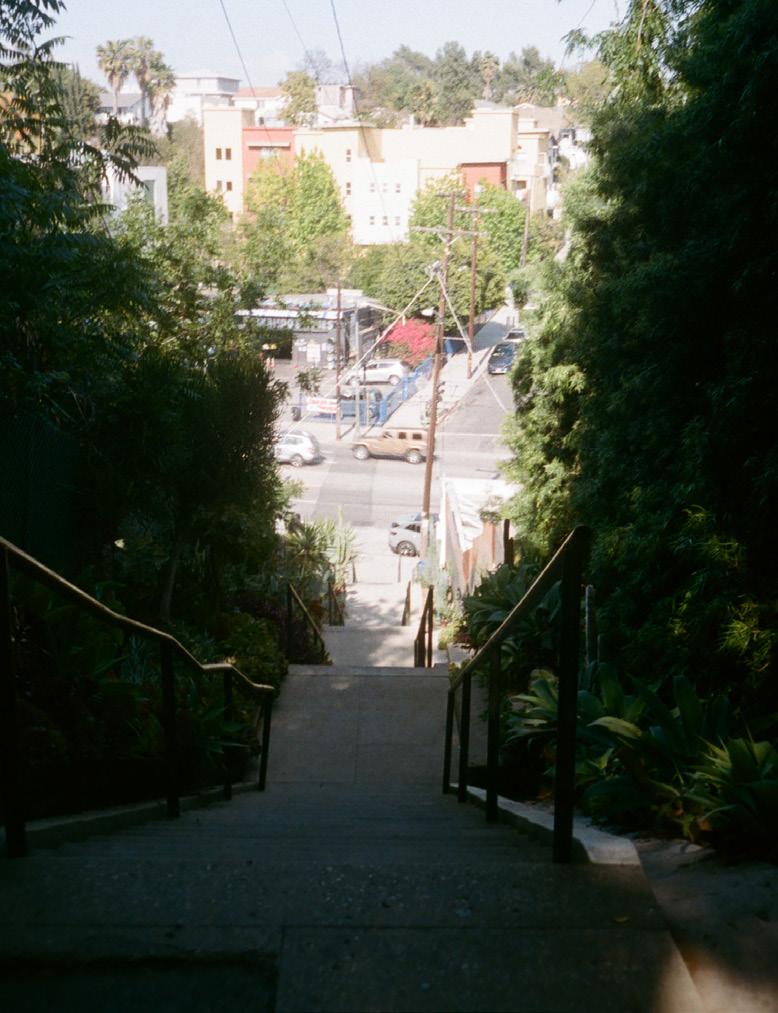


A Stairway to Nowhere
Pedestrian walkways, stair streets, public stairways; A street where the pedestrian is the prioritized, and often only mode of transit on the street. The stair street is not the average nor standard type of street in Los Angles. Yet they are prevalent across the city and county. From the walk streets of Venice, to the pedestrianized streets apart of HLA 1, to the Secret Stairs of Los Angeles, to the desired paths of Mt. Washington. Some, a remnant of a bygone era, some a adhoc infrastructure of a reimagined future.
This book views the structures of a by-gone era experienced as apart of the contemporary city. A collection of photography shot over the course of eight hours walking through Silverlake and Echo Park. An epicenter of this typology of street. As highlighted in Ecology # 2: Foothills in Los Angeles: The Architecture of the Four Ecologies by Reyner Banham, Los Angeles is partially understood through its’ relationship to hill sides. Architectural and infrastructural solutions which open these spaces for development are often on a case by case basis, an artifact of a different bureaucratic and societal structure.
These Stair Streets are representative of a time where Los Angeles had one of the premier public transit systems in the world, over thirty street car lines crisscrossing the county. Out from the Downtown of a “farming city” as Norman Klein depicted the space where Los Angeles of
the twentieth century grewout of. A frontier city surrounded and interspersed in miles of citrus groves, grape vines, oil fields, and beaches. A tool for Huntington and his sprawling expansion, and the many other speculators alike.
From Loma Vista Place to the Micheltorena Steps they connected homes and communities on the hills down to the main streets where street cars and electric trollies ran. Klien in a the History of Forgetting depicts a Los Angeles whose civic identity and outward representation is constructed and reconstructed in perpetuity. The myth of Los Angeles is constantly reinventing and reconstructing itself. The current myth that is as prevalent as any other seeping into the subconscious of Angelenos and consumers of Los Angeles alike.
Los Angeles is a city built for cars.
Los Angeles has been reinvented as a city which represents post-war suburban fantasy. A home, a yard, a fence, and the automobile. But that is not necessarily representative of the history of Los Angeles. This history is of a city with different needs and wants. Different Ideas for the future. We may not live in that imagined future. None-the-less these spaces persist, imagining a different perspective city.
The Forgotten Stairway are images of city which once was, a city that is, and city that could be.

Some Stair Streets of Silverlake and Echo Park
M.Arch GT25_SCI-Arc
May 2025
Olympus Pen EE-3_200 ISO Kodak Gold
